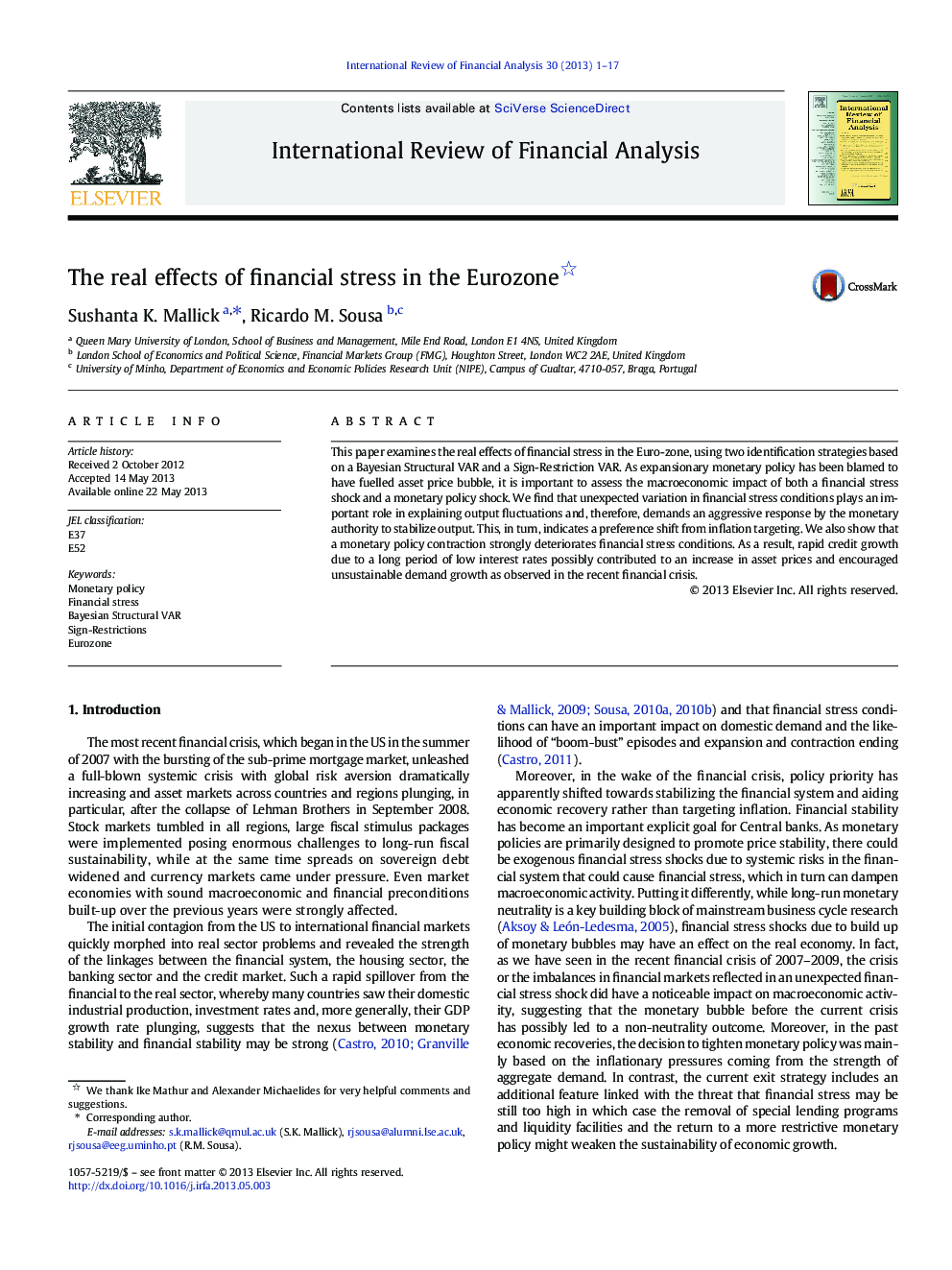| Article ID | Journal | Published Year | Pages | File Type |
|---|---|---|---|---|
| 5084935 | International Review of Financial Analysis | 2013 | 17 Pages |
Abstract
This paper examines the real effects of financial stress in the Euro-zone, using two identification strategies based on a Bayesian Structural VAR and a Sign-Restriction VAR. As expansionary monetary policy has been blamed to have fuelled asset price bubble, it is important to assess the macroeconomic impact of both a financial stress shock and a monetary policy shock. We find that unexpected variation in financial stress conditions plays an important role in explaining output fluctuations and, therefore, demands an aggressive response by the monetary authority to stabilize output. This, in turn, indicates a preference shift from inflation targeting. We also show that a monetary policy contraction strongly deteriorates financial stress conditions. As a result, rapid credit growth due to a long period of low interest rates possibly contributed to an increase in asset prices and encouraged unsustainable demand growth as observed in the recent financial crisis.
Related Topics
Social Sciences and Humanities
Economics, Econometrics and Finance
Economics and Econometrics
Authors
Sushanta K. Mallick, Ricardo M. Sousa,
